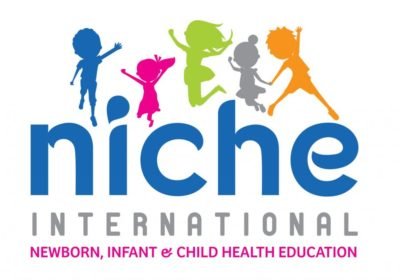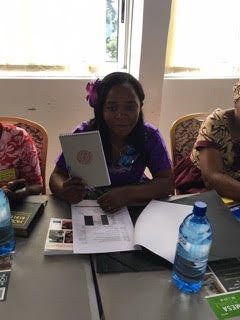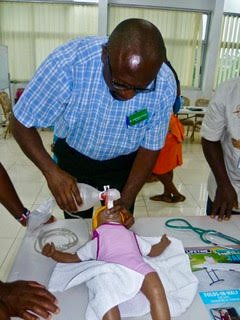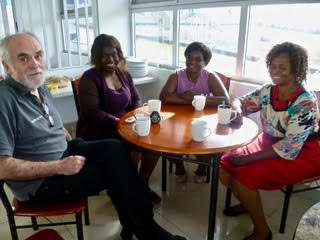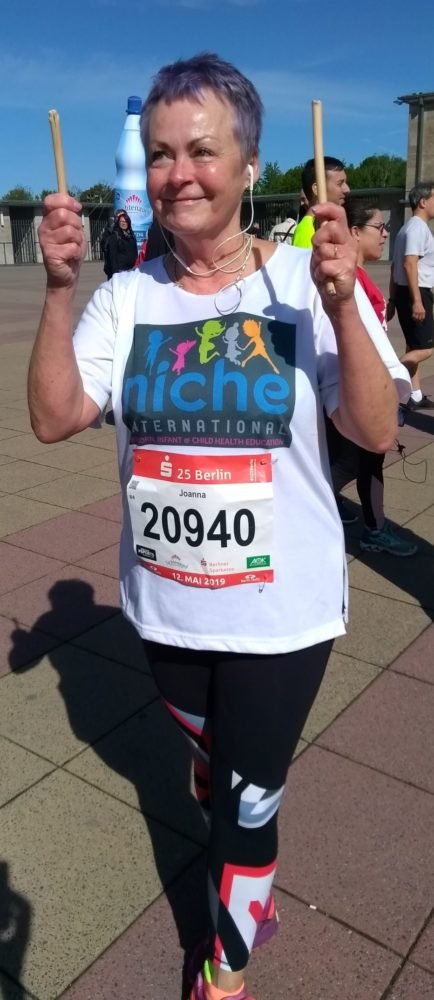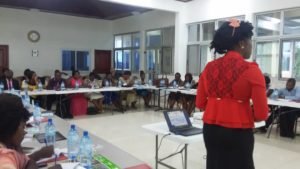
Seb and Julia at the NICHE table during a recent community event in north London. Lots of people showed an interest in the charity, and in the handmade brass items from Cameroon. The artists first make the model out of beeswax, then cover it in clay, allow the wax to melt leaving a clay mould and then fill a second container with old keys, bits of car engine etc., put more clay around the whole thing and put in a homemade kiln. As the man who made my Nativity set said, you have to wait till the flames from the kiln are giving off white smoke, then you know the metal is melting and filling the moulds. When the little clay parcels come out of the fire, they are allowed to cool and then the clay is broken off, leaving a brass model in place of the original wax one. If you’re interested in seeing how scrap metal is recycled to make brass ornaments in West Africa, there’s a fascinating Ghanaian video on You Tube at https://www.youtube.com/watch?v=REutkpo3ors.


